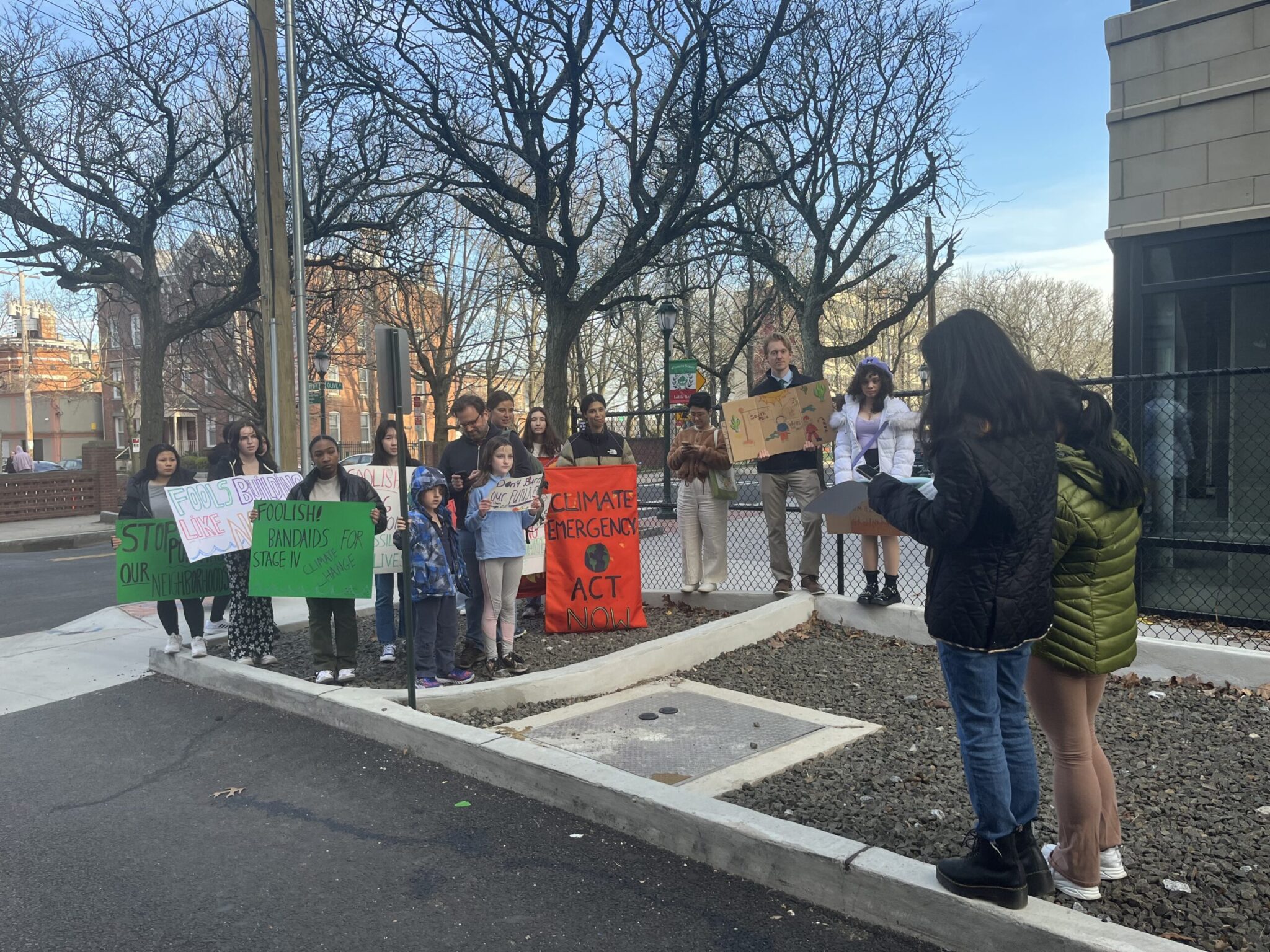Youth climate activists lead “Fossil Fools” protest from Wooster Square to City Hall
The New Haven Climate Movement nodded to recent reforms while urging the city to continue employing improved environmental policy.

Natasha Khazzam, Contributing Photographer
For the New Haven Climate Movement, April Fools’ Day was not a cause for fun and games.
The NHCM — a youth-led environmental action group — held their annual Fossil Fools Rally on Monday, with roughly 20 protestors marching from the intersection of Chapel Street and Olive Street to City Hall. Protestors made four stops along the way, during which NHCM members sarcastically announced “awards” for various entities they believe have negatively contributed to the ongoing climate crisis.
“We are having this public action event today to call out the foolish actions of the city of New Haven, which must act on the climate crisis and specifically promote electrification initiatives,” said Elisa Cruz ’26, who co-led Monday’s protest.
The group met outside Olive and Wooster Apartments, a complex built by New York City real estate group Epimoni in May 2022. NHCM speakers claimed that the builders installed 450 new gas hookups in the apartments, which facilitate the transfer of natural gas from external sources into homes. While the apartment complex uses electric stoves, it still relies on gas-based heating systems. As of 2019, approximately 39 percent of residences in New Haven County use gas to generate heat, as compared to the overall Connecticut state average of 35 percent.
Patricia Joseph ’26, NHCM intern, presented Epimoni with the NHCM’s “450 Deadly Sins Award,” a recognition of the real estate group opting to use fossil fuels over renewable sources for heating.
“We cannot have new fossil fuels polluting developments such as this,” Joseph said as she presented the certificate before the group of protesters.
The News was unable to reach Epimoni for comment
At their next stop along the way to City Hall, the group presented their “Wrong Way, Dead End Award” to the city’s Board of Alders for “failure to improve the city’s transportation in the face of a climate crisis.” Transportation is currently the largest contributor to Connecticut’s carbon footprint, accounting for 38 percent of the state’s total greenhouse gas emissions.
Speakers acknowledged the city’s electrification efforts and ongoing strides to limit the use of fossil fuels, noting the Community Electrification Resolution. The resolution was passed by the Board of Alders in 2021 and committed New Haven to electrifying city buildings and vehicles by the end of 2030.
Lucy Yu, a first-year at Hopkins School in New Haven, explained that despite local efforts to electrify public buses, there are still 800 diesel-operated buses in use throughout Connecticut. She also expressed dissatisfaction with the city’s lack of attention to bike-lane projects as well as its focus on expanding parking space.
“In the end, the city is just not doing enough to counteract the overwhelming effects of transportation-related emissions,” Yu said.
Joseph similarly acknowledged the city’s efforts, but drew attention to what she views as failures by the city to take initiative in proposing these changes. She said that much of the city’s environmental action has been launched only in response to various pushes by the New Haven Climate Movement. Additionally, she suggested that many of the city’s public commitments may not be entirely feasible as of now.
“In terms of seeing a plan … I think we still have a long way to go.” Joseph told the News. “These commitments can be promised, but we also face the challenges of not having enough staff to continue or to push for these projects.”
Last year’s Fossil Fools Rally was held on April 1.







